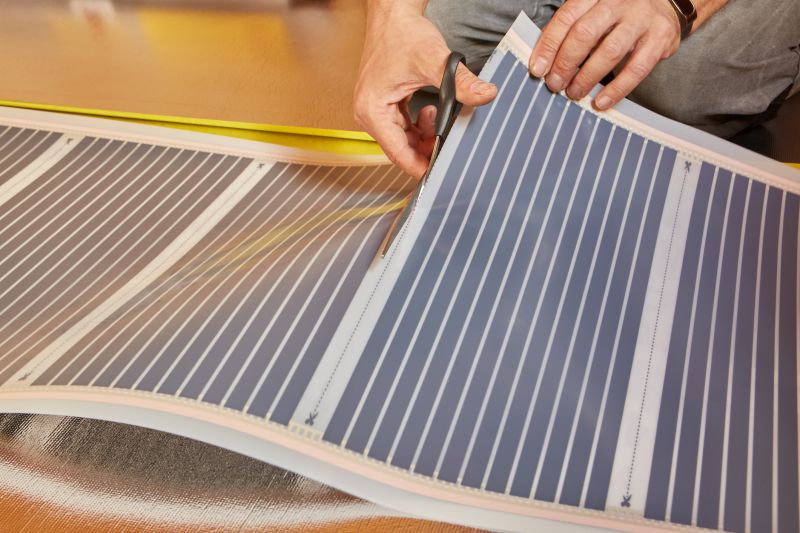Top-Rated Products For Heating System Installations To Ensure Longevity
Choose reliable components and tools designed to extend the lifespan and performance of your heating system.
 Installing a heating system requires a variety of products designed to ensure efficient, safe, and reliable operation. From initial preparation to final connections, the right components can make a significant difference in performance and longevity. Whether upgrading an existing system or installing a new one, selecting suitable products is essential for achieving optimal results. Proper installation not only enhances comfort but also helps prevent potential issues such as leaks, inefficiencies, or system failures.
Installing a heating system requires a variety of products designed to ensure efficient, safe, and reliable operation. From initial preparation to final connections, the right components can make a significant difference in performance and longevity. Whether upgrading an existing system or installing a new one, selecting suitable products is essential for achieving optimal results. Proper installation not only enhances comfort but also helps prevent potential issues such as leaks, inefficiencies, or system failures.
Top Overall Option
Multi-Functional Heating System Installation Kit
This comprehensive kit includes a variety of essential components such as pipes, fittings, valves, and thermostats designed for versatile heating system installations. It offers compatibility with multiple system types and simplifies the installation process by providing all necessary parts in one package. Made from durable materials, this kit aims to support efficient and reliable operation over time.
Types of Products For Heating System Installations
Pipes and Tubing
Various materials including copper, PEX, and steel pipes suited for different heating systems, providing reliable fluid transport.
Fittings and Connectors
Various elbows, tees, and adapters designed to connect pipes securely and facilitate system layout.
Valves and Actuators
Control valves and actuators that regulate flow and temperature within the system.
Thermostats and Controls
Programmable and manual thermostats for precise temperature management.
Expansion Tanks
Components that accommodate fluid volume changes and maintain system pressure.
Pump Systems
Circulators and pumps designed to ensure consistent fluid movement throughout the system.
Insulation Materials
Insulation options to minimize heat loss in pipes and improve efficiency.
Mounting and Support Hardware
Brackets, clamps, and supports for secure installation of pipes and components.
Control Panels
Centralized units for managing multiple heating system components and settings.
Drainage and Bleed Valves
Devices for removing air and draining fluids to maintain system efficiency.
Pressure Relief Valves
Safety devices that prevent overpressure conditions within the system.
Sensors and Monitors
Temperature and pressure sensors for real-time system monitoring.
Boiler and Furnace Attachments
Components designed for integrating with boilers and furnaces for optimal operation.
Hydronic Heating Components
Parts specific to hydronic systems, including radiators and baseboards.
Electrical Wiring and Connectors
Electrical components necessary for powering and controlling heating system elements.
Popular Choices
Popular for its ease of installation and adaptability in various heating system configurations.
Comprehensive sets that include a variety of fittings for different connection needs.
Widely used for their programmable features and precise temperature control.
Commonly chosen for their reliability in circulating heated fluids efficiently.
Frequently selected to help maintain system pressure and prevent leaks.
Popular for reducing heat loss and improving overall system efficiency.
Often used for regulating flow and temperature with ease.
Common safety components to prevent overpressure conditions.
Popular for controlling individual radiator temperatures.
Frequently chosen for their efficient heat distribution in rooms.
Trending for enabling remote control and automation of heating systems.
Commonly used for system maintenance and flushing.
Popular for providing accurate readings to optimize system performance.
Frequently selected for connecting control units and thermostats.
Heating system installations often involve multiple components working together, including pipes, fittings, thermostats, and control units. Each element must be compatible with the overall system design and meet specific standards for safety and durability. High-quality materials can withstand the demands of continuous operation and varying temperature conditions, reducing the need for frequent replacements or repairs.
When considering products for heating system installations, it is important to evaluate their ease of installation, compatibility with existing infrastructure, and compliance with local codes. Properly selected components can facilitate smoother installation processes, minimize downtime, and ensure a reliable heating experience. Additionally, investing in versatile products that accommodate different system configurations can provide flexibility for future upgrades or modifications.
Overall, a well-planned approach to selecting installation products can contribute to the efficiency and longevity of a heating system. Consulting with professionals and choosing reputable, high-quality components can lead to better performance and peace of mind. Remember that the right products are an investment in the comfort and safety of your space, making careful selection a crucial step in any heating system project.
Key Buying Considerations
- Compatibility with existing heating system components and infrastructure.
- Material durability and resistance to corrosion or wear over time.
- Ease of installation, including whether the product requires specialized tools or skills.
- Compliance with local building codes and safety standards.
- Capacity and size appropriate for your space and heating demands.
- Compatibility with control systems or smart home integrations if desired.
- Flexibility for future upgrades or modifications.
- Availability of replacement parts and support from manufacturers.
- Thermal conductivity and insulation properties to maximize efficiency.
- Leak-proof and secure fittings to prevent water or fluid leaks.
- Ease of maintenance and accessibility for repairs.
- Certifications or standards met by the product for safety and quality.
- Cost-effectiveness over the long term considering durability and efficiency.
- Environmental factors such as exposure to moisture or temperature fluctuations.
- User reviews and feedback on product performance and reliability.
